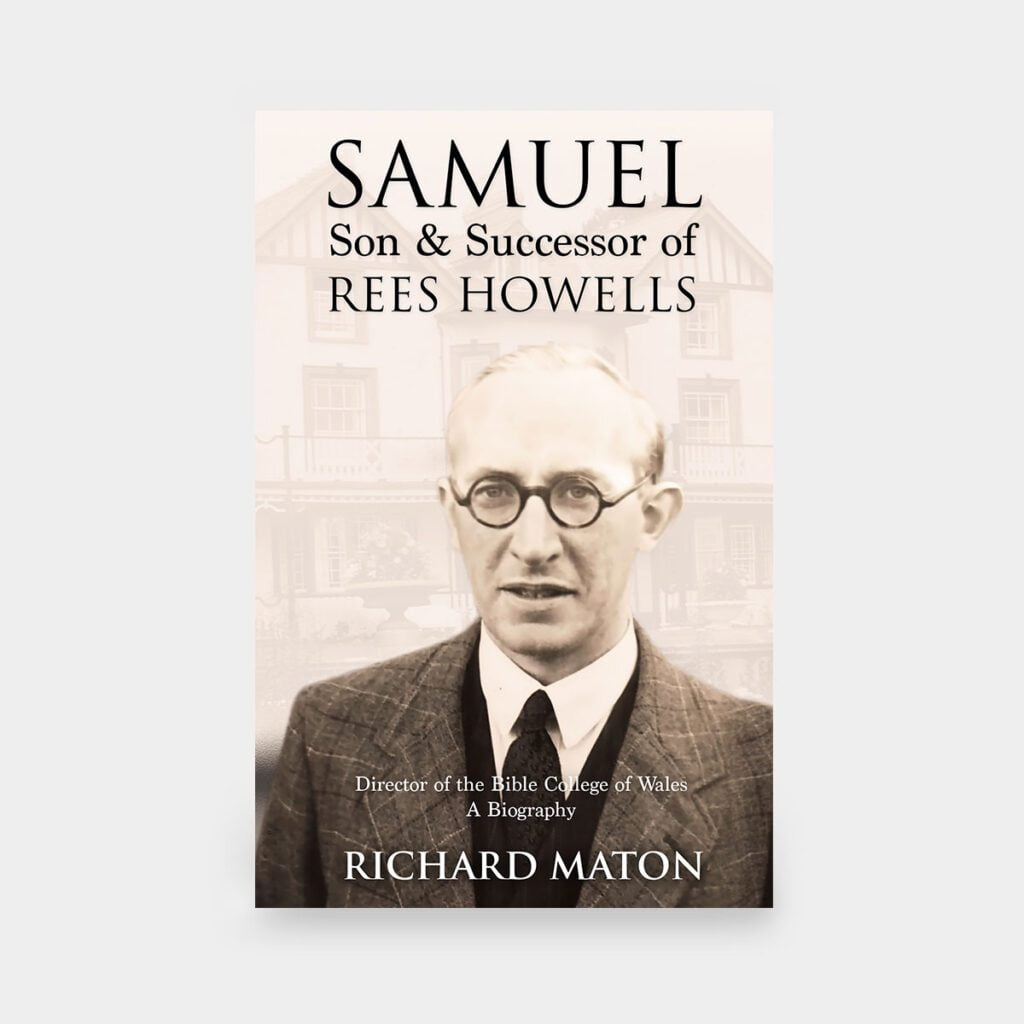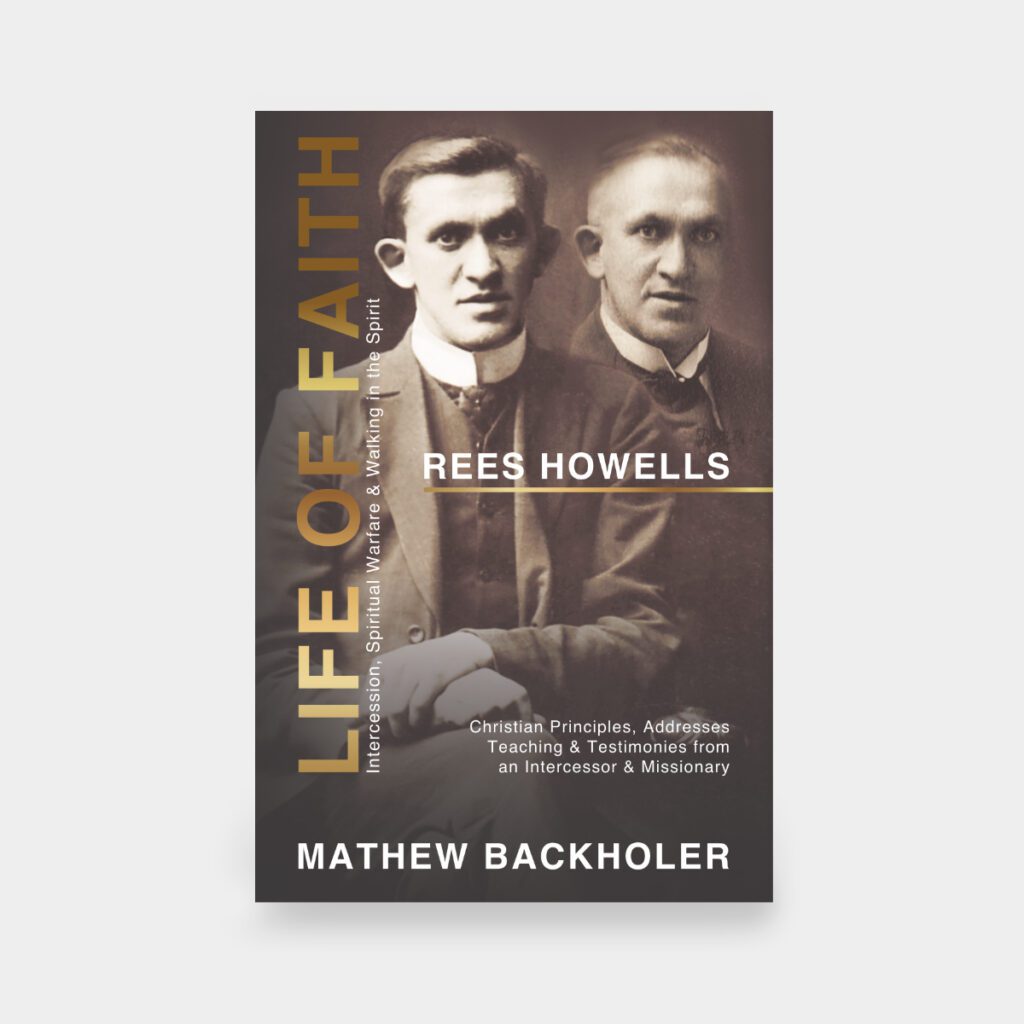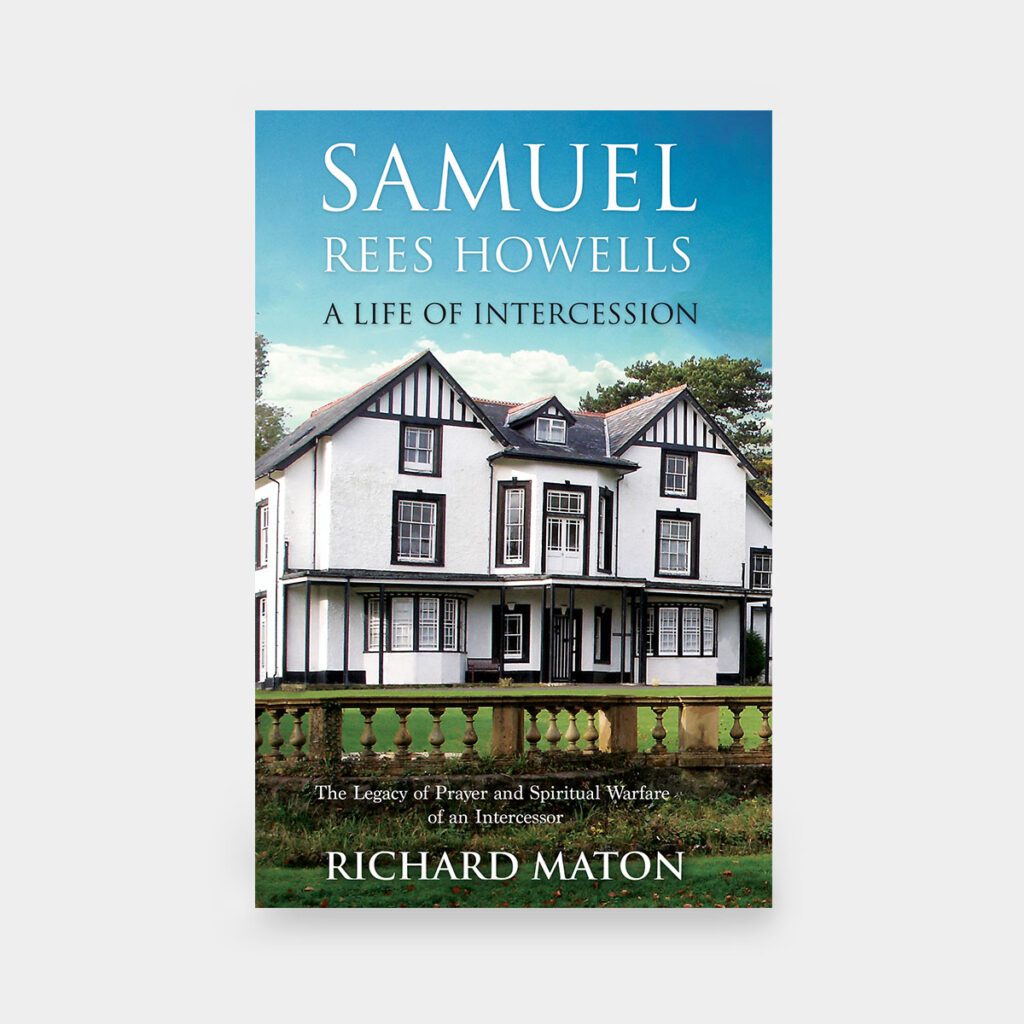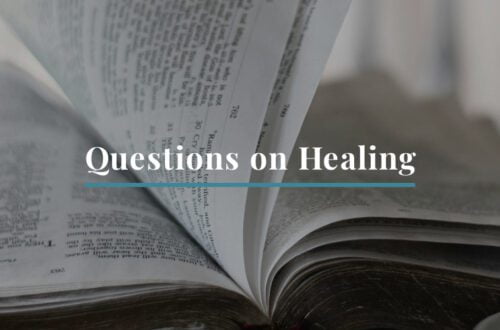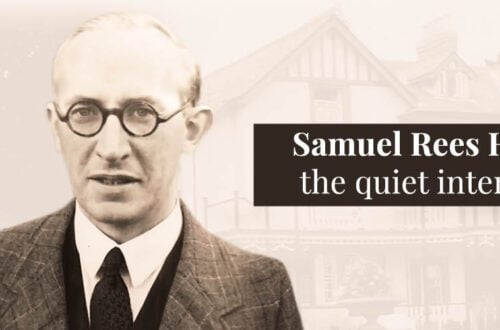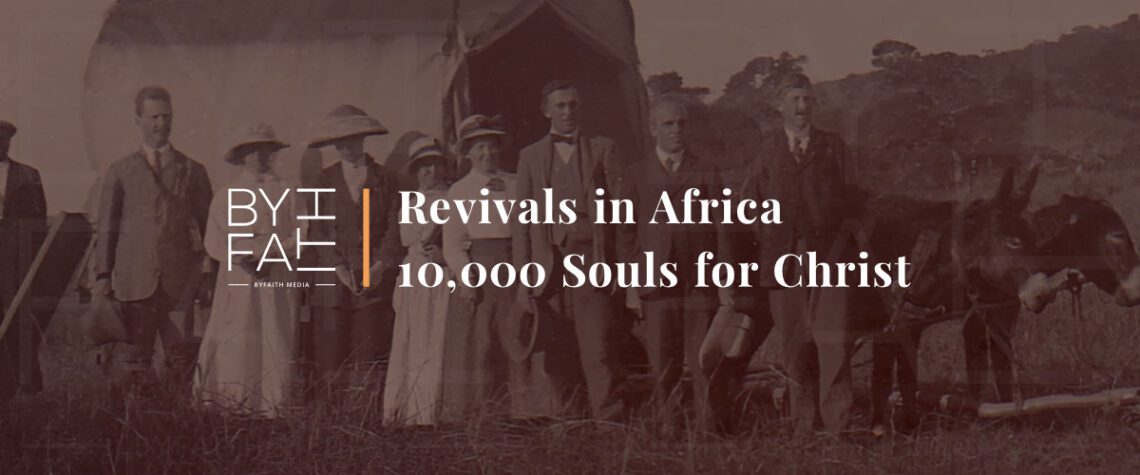
Revivals in Africa, 10,000 Souls for Christ
The Test of Obedience
In August 1912, the same month as Samuel Howells was born, his parents, Rees and Lizzie Howells were burdened to pray for more missionaries to be sent to Africa. As they were praying for labourers to be thrust out into the harvest fields, the Lord said, “I will answer this prayer through you! I will send you both out there!” A heavy sense of duty fell upon them as they contemplated the cost of the call. A young Samuel could never go to Africa with them because it would be a sentence of death to expose him to malaria-ridden swamps, extreme temperatures and dangerous foreign lands.
It was our first test on the call and the greatest
– Rees Howells
The words of Jesus shattered their seemingly comfortable faith, “He that loves son or daughter more than Me is not worthy of Me” (Matthew 10:37). This young couple had read this verse many times before, but they never thought the Lord would ask them to live it. As they brooded over this new call, they began to empathise that God the Father had given up His only Son because of His interminable love for sinful mankind, and He was now asking them to do what He had already done.
Jesus had given His life for every soul in the world, including all Africans and now, Rees and Lizzie Howells swallowed their grief to follow Christ to the cross, to lay down their son, and if necessary, to die in Africa. With this in mind, foster parents had to be found for Samuel, and after a battle of faith the Lord provided him a home with Uncle Moses Rees and his wife, Elizabeth in Garnant, Wales.
I am more indebted to them than to any people on the face of the earth
– Rees Howells, in a letter to Samuel regarding Samuel’s adopted parents, Moses and Elizabeth Rees
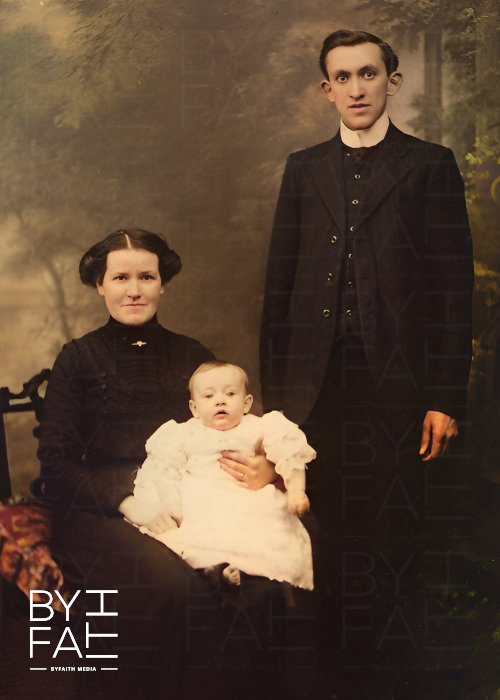
When the day came to hand young Samuel over, Lizzie Howells’ sacrifice proved that she too had made a deep unconditional surrender to God. Folding his baby clothes, she broke her heart. His tiny fingers, gentle eyes and loving smile made her feel it was the end of the world. Rees did all he could to hold himself together for his wife, but she wept the tears of a loving mother. Together, they proved that Africa was going to cost.
Later, Rees Howells asked his wife how she found the strength to obey the Lord and she told him that the Lord had said, “Measure it with Calvary.” If Christ was willing to suffer torture, humiliation, excruciating pain and separation from the Father for her, she too would prove her willingness to follow Him; and the words of the hymn she often sang came to mind: ‘But we never can prove the delights of His love, until all on the altar we lay.’
On 7 May 1915, two months before Rees Howells and his wife set sail for Africa, the RMS Lusitania was torpedoed by a German U-20 submarine and sank in just eighteen minutes. 1,198 innocent lives were lost, including 128 American citizens. This act set America on a path that eventually led the U.S. to join World War I (1914-1918). It was also a timely reminder that Rees and Lizzie Howells would be sailing into a war zone!
At Samuel’s foster parents’ home in Garnant, Wales, at the bottom of the garden and down the embankment ran the local railway line. Samuel could vaguely recall being asked to wave to his parents on 10 July 1915, just before his third birthday, as the train puffed its way along the track on their journey to Southern Africa.

Rees and Lizzie Howells had left Garnant, Wales, having bought tickets only as far as Llanelli (26 miles away); the Lord had not at that point supplied the full fare to London, England. In Llanelli and still without the money, Rees and Lizzie joined the queue – a real test of obedience and faith, rewarded by a last-minute deliverance from one of the singing crowds, who had gathered to see them off.
This was not an act of bravado to be copied but one that emerged from their experience of the faithfulness of God gained through a walk of complete dependence on His promises over several years. Before they left the station on their journey to London and beyond, they were showered with further gifts, enough to cover their expenses for the whole trip.
This was the first test of many to get the young missionaries to the harvest field. In 1915, German submarines sank 1.3 million tons of shipping. As the RMS Walmer Castle departed from England, many passengers were fearful that their ship would be sunk like the RMS Lusitania, but Rees assured all who needed it that God would protect them. To believe that God would guard their ship from German submarines and to publicly declare it to those who were afraid, was a leap of faith that few have taken. Rees was proving the power of intercession. Here was a man of God who had secured a victory in the heavenly realm for himself and his wife. Now, he could stand for the protection of all!
Rees Howells was not the first person to attain this intercessory victory. During a storm that eventually wrecked their ship, Paul said:
For there stood by me this night an angel of the God to whom I belong and whom I serve saying, ‘Do not be afraid Paul, you must be brought before Caesar and indeed God has granted you all those who sail with you.’ Therefore take heart, men, for I believe God that it will be just as it was told me
– Acts 27:1-2, 23-24
God too, had granted a safe passage to these two young missionaries and to ‘all who sailed with them.’ Through experiences like these, the Lord showed Rees Howells and his wife the need to allow the Holy Spirit to bring their experience up to the level of the Word.
Another test came on the journey when the captain lost his nerve and feared for their safety. But they continued to assure the captain of a safe passage through U-boat infested waters because God was taking them to Africa to serve Him. These profound risks of faith which they undertook were unknown to young Samuel, but they kept in touch and sent postcards to him on their journey.
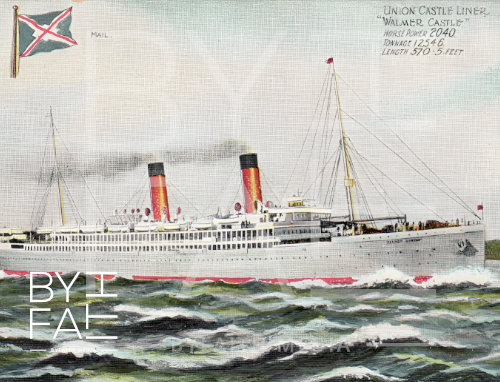
Many years later, on 27 January 1945, Rees Howells preached on 1 Kings 19:15-16 and 19-21, concerning Elisha being commissioned by Elijah and he recalled his ministry in Africa:
“I was called to the ministry and afterwards to Africa,” he said, “and those souls in Africa became more to me than my life…Could anything be greater than to go out to the heathen with the risen Christ?”
Rees then testified of his intercession for a Welsh village nicknamed Hell-Fire Row, prior to coming to Africa. In this village there was not even one Christian, but he was led by the Holy Spirit to stand in the gap for those people, and he gained a place of intercession for them and revival came. Then, when he went to Africa, the Holy Spirit applied that gained position of intercession for them. The Holy Spirit had taught him to love at home, now he could love the world.
I knew what He could do in the village – as a proof. That call was the greatest thing, it was greater than Samuel
– Rees Howells
Rees Howells then explained how Samuel was placed on the altar, just as Isaac was, but in doing so, he was able to claim 10,000 souls for Christ. Rees stated:
I went to Africa and oh, the love I had for those natives, and in two months the revival came – I knew I would have 10,000 souls for Samuel
– Rees Howells
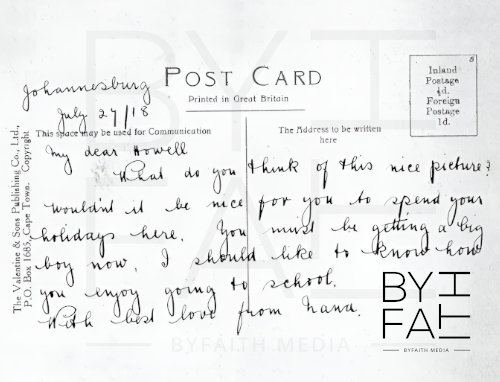
Whilst in Africa, Rees wrote in a missionary magazine asking for prayer for young Samuel: ‘Now we ask you to pray that the Lord will lead little Samuel to walk in the footsteps of the one after whom he is named, and that he shall some day be a prophet of the Lord. Rees Howells’ (1 Samuel 1:20). These deep wishes for Samuel were to be fulfilled one day, but there is always the price of obedience to pay. The cost of separation never left Rees and Lizzie Howells in Africa, but in its place the Lord poured His love for the African people into them. Their love for their son is evidenced by a series of poignant postcards sent to Samuel from South Africa.
These cards were treasured memories for Samuel all his life, as he too felt the enormous pain of this costly obedience by his parents. Out of it, of course, were to emerge waves of revival blessing in Southern Africa, wherever they were to minister.
As an adult, Samuel always spoke with deep reverence and respect for the sacrifice his parents had made by ‘lending him to the Lord.’ He reminded the Bible College in later years that the Lord promised them 10,000 souls for their obedience. Samuel stated:
The Holy Spirit told him (Rees) that every person that he would lay his hands on would enter into life. He was dealing with souls about eighteen hours a day! That’s what happened in Africa. But a price had been paid! When he went out there, the Africans wanted to know everything – where are your respective families? Mother told them that she had an aged father. Father told them that he had an aged mother that was dependent upon him and that they had their little boy of three years of age. The Lord told them to leave them behind and they said, “We do not know if we shall ever see them again.” It was during the First World War (1914-1918), and everything was uncertain
– Samuel Rees Howells
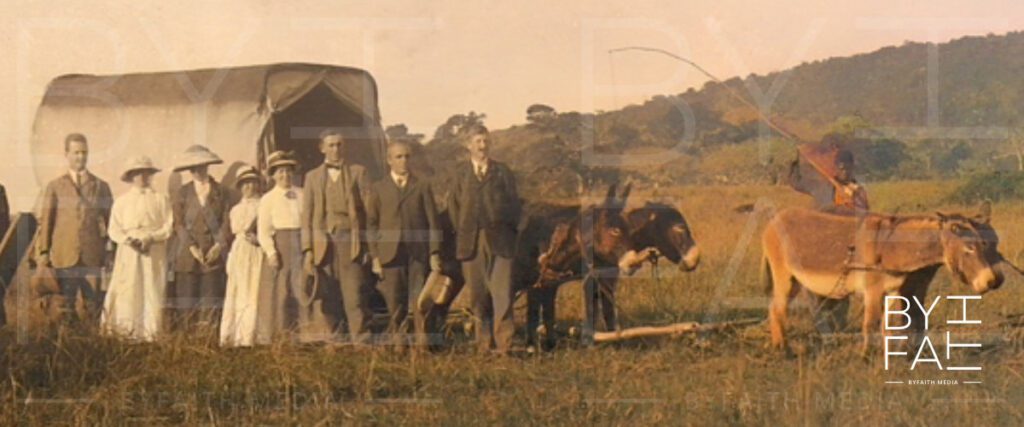
God told us to come out (to Africa) and love you, just as He loved them
– Lizzie Howells, to the indigenous people of Southern Africa
Samuel responded:
The Africans never heard anything like it! That was the preparatory measures for the break-up of the strongholds of witchcraft. But he was never afraid of the devil. Did (Rees) express fear of the enemy? Not at all. He knew that the Holy Spirit was far stronger than those spirits that dominated that place. When He came, He broke the power of the enemy and set the people free
– Samuel Rees Howells
The Holy Spirit’s guidance led to 10,000 souls being saved as revival spread like wildfire from one mission station to the next. Rees and Lizzie’s love for Samuel never diminished and their costly act of obedience gained them a place of intercession, as they identified with every missionary who had to leave their children behind for their safety.
Many years later, the Lord led Rees and Lizzie Howells to provide a home for hundreds of missionary children whose parents were serving the Lord globally. From February 1950, Samuel would take responsibility for the subsidising of this ministry for over forty years. Missionaries had to pay fees for their children to board at school, but at less than cost. Even then, many missionaries still found it hard, especially when two or more children were boarding.
Adapted article by Mathew and Paul Backholer and used with permission from Samuel Rees Howells, A Life of Intercession by Richard Maton and Paul Backholer, edited by Mathew Backholer.
Find out about Rees Howells’ books here.


